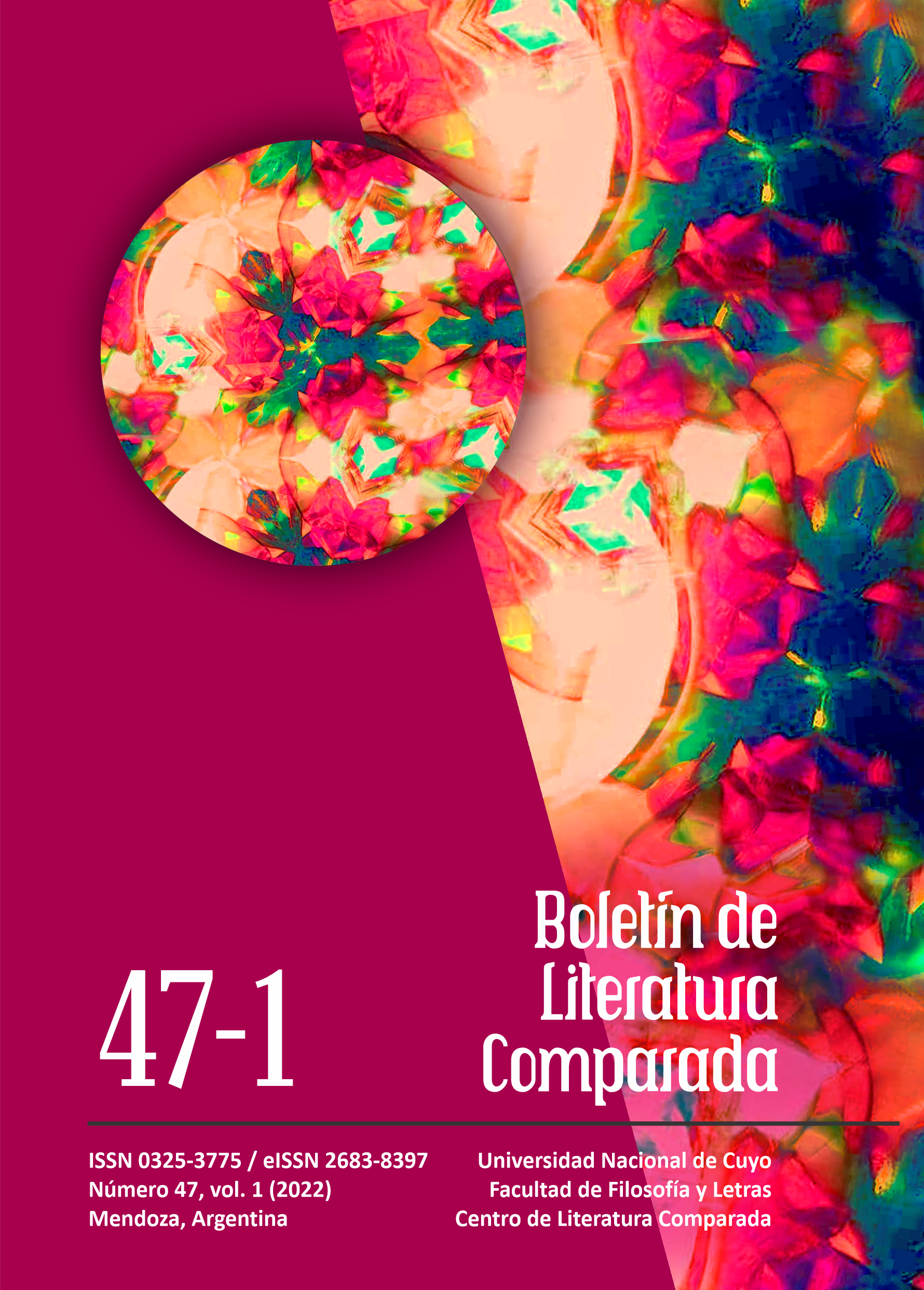Literary Allotropy: A New Transtextual Relationship
DOI:
https://doi.org/10.48162/rev.54.014Keywords:
rewriting, intertextuality, hypertextuality, transtextuality, Gérard GenetteAbstract
This article presents the hypothesis that a new transtextual relationship could exist: literary allotropy. The proposal is framed in the paradigm of Gérard Genette's transtextual relationships. The approach to literary allotropy arose by identifying a phenomenon of rewriting, initially, in two pairs of texts: the novel Snow Country and the short story "Gleanings from Snow Country," by Kawabata, one one hand, and the short stories “The Aleph,” by Borges, and “The fattened Aleph,” by Katchadjian, on the other. The particularity of the texts in which I identify the rewriting is that, despite changing form, they retain the plot and a large number of passages in a literal way. Considering that neither intertextuality nor hypertextuality—which are the relationships that I consider the closest to what I understand by allotropy—completely responded to the behavior observed in the indicated texts, I thought that another relationship could exist.
References
ARRIVÉ, Michel, “Para una teoría de los textos poli-isotópicos”. En: NAVARRO, Desiderio (ed.), Intertextualité. Francia en el origen de un término y el desarrollo de un concepto. La Habana: Unión de Escritores y Artistas de Cuba (UNEAC), Casa de las Américas, Embajada de Francia en Cuba, 1997, pp. 75-86.
BORGES, Jorge Luis, “Tema del traidor y del héroe”. En: Revista Sur 112, año XIV, (1944): pp. 23-26.
BORGES, Jorge Luis, “El Aleph”. En: Cuentos completos. Buenos Aires: Debolsillo, 2015a, pp. 342-357.
BORGES, Jorge Luis, “Tema del traidor y del héroe”. En: Cuentos completos. Buenos
Aires: Debolsillo, 2015b, pp. 182-186.
GENETTE, Gérard, Palimpsestos. La literatura en segundo grado. Madrid: Taurus, 1989.
JENNY, Laurent, “La estrategia de la forma”. En: NAVARRO, Desiderio (ed.), Intertextualité. Francia en el origen de un término y el desarrollo de un concepto. La Habana: Unión de Escritores y Artistas de Cuba (UNEAC), Casa de las Américas, Embajada de Francia en Cuba, 1997, pp. 104-132.
KATCHADJIAN, Pablo. “El Aleph engordado”, 2009. http://tallerdeexpresion1.socia les.uba.ar/files/2012/04/El-Aleph-Engordado.pdf, recuperado el 13 de mayo de 2015.
KAWABATA, Yasunari, País de nieve. Buenos Aires: Emecé, 2003.
KAWABATA, Yasunari, “Apuntes sobre País de nieve”. En: Historias en la palma de la mano. Buenos Aires: Emecé, 2006, pp. 276-289.
MARCHESE, Angelo/FORRADELLAS, Joaquín, Diccionario de Retórica, Crítica y terminología literaria. Barcelona: Editorial Planeta, 2013.
ONETTI, Juan Carlos, Cuentos completos. Madrid: Alfaguara, 1994.
QUINTANA, Francisco, “Réplicas intertextuales elocutivas en la poesía de Jorge Guillén”. En: PIEDRA, Antonio/BLASCO, Javier (eds.), Jorge Guillén, el hombre y la obra. Valladolid: Universidad/Fundación Jorge Guillén, 1995, pp. 221-243.
TOMACHEVSKI, Boris, Teoría de la literatura. Madrid: Akal, 1982.
Downloads
Published
How to Cite
Issue
Section
License
Copyright (c) 2022 Autor

This work is licensed under a Creative Commons Attribution-NonCommercial-ShareAlike 4.0 International License.




